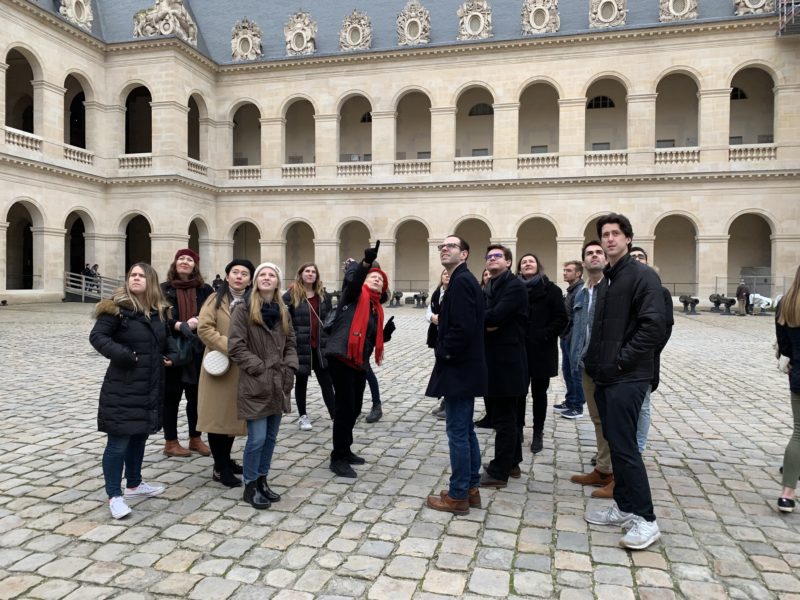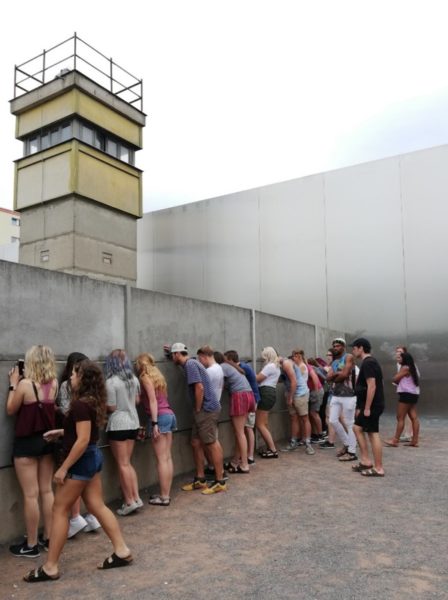Last Updated on August 18, 2020 by AIFS Abroad
AIFS was founded in 1964 and is a leading provider of educational and cultural exchange opportunities. Since we were established, over 1.5 million students have participated in our programs.
AIFS supports U.S. faculty with customized programs to teach their students abroad. In fact, we were among the first to offer this type of experiential programming, starting in the 1960‘s. AIFS currently arranges such study abroad programs for approximately 100 U.S. colleges and universities.
On Customized, Faculty-Led Programs, a faculty member accompanies a group of students from their campus to teach a course abroad for a short term (summer, winter, spring break) or several courses for a semester-long program vs. an individual student who enrolls in a foreign university for a term. It is the best way to internationalize your curriculum.
“Customized” programs are tailor-made.
The location and logistics complement the outcome objectives of the curriculum.

Benefits of customized, faculty-led programs:
- Fully customized, “your own” A tailored program that meets the needs of your institution—you decide the program length, time of year and courses.
- Retain curricular oversight – syllabus, learning objectives, pacing, etc.
- Credit Retention — Your institution provides credit, so there is no issue of transfer.
- Cost-efficient– Your institution retains student tuition fees.
- Status Friendly — Student financial aid still applies. This makes study abroad an option for more students.
- Internationalization — Great opportunity to provide faculty development and globalize your campus.
- Outcomes- Study abroad is not just a “trip abroad”. It must be experiential learning. Study abroad is learning by doing. It is a high impact practice that benefits your students and brings them long-term advantages- academically, personally and professionally.

In 2018, AIFS completed the second part of a longitudinal study with alumni from 1990 to 2017. Alumni confirm that study abroad has a significant impact on students’ personal and professional lives, their career development and success in advancing prospects for employment after graduation.
- 66% of AIFS alumni surveyed report that they were asked to speak about their study abroad experience in job interviews.
- 58% of AIFS alumni surveyed agreed that studying abroad contributed to “developing skills and intercultural competencies which contributed to obtaining my first job after graduation.”
- 86% of AIFS alumni surveyed that study abroad contributed to “my ability to adapt in diverse workplace environments.”
- 96% of AIFS alumni surveyed agree that studying abroad resulted in a better understanding of themselves and their values.
- 96% of AIFS alumni surveyed agree that studying abroad contributed to their ability to be independent.
The planning process
Once you’ve chosen the course and destination and ideal cultural and integration components of the program abroad, there are some details to consider:
- Academic Focus– What is the academic focus? What are the learning objectives?
- Where and When– How will the location help highlight your academic focus? What is the best term/length of program for your students?
- Mindful programming– Blend travel and programming with academic objectives. The study abroad program should be an expansion of your curriculum- make the world your classroom.
- Proximities and Costs– If it’s too much travel, it can be costly. If the cost is too high, you’ll have trouble finding students. Also, students don’t tend to enjoy the “travel time.” We recommend a balanced mix of cultural visits and activities that engage student with the host culture and people. Those moments of engagement will have the most impact and be the most memorable for students.
- Progression–
- Students will need more support at the start
- Gradually and intentionally increase the level of expected independence and personal challenge
- Include an assignment with intentional challenge (e.g., go to grocery store; use public transportation)
- Watch for cultural overload and adjust accordingly- “de-briefs”
- Logistics– Do you need comprehensive local support for student services (health (including mental health) & safety, discipline? Do you require classroom space, local transportation, local experts or adjuncts?
- Accommodations, Travel, Visits and Excursions– What are your options for students? For faculty? Do you have an ideal itinerary?

The AIFS Advantage
Logistical components of AIFS Customized, Faculty-Led programs can include:
- Dedicated in-country AIFS staff onsite with 24-hour emergency support for faculty and students
- Student accommodation: Options may include homestays, shared studio apartments, student residences or hotels
- Academic visits, field trips, community engagement, social & cultural group activities including cultural highlights, theater, concerts, dinners. We include entrances, local academic guides, and transportation.
- Access to classrooms and student center with Wi-Fi and A/V equipment and technology as required
- Transportation pass for students and faculty for use on local public transportation
- Student medical and program fee refund insurance policies, as outlined in the AIFS insurance brochure. Coverage includes $100,000 accidental death payment plus 24-hour emergency case assistance during the program and repatriation in cases of verified emergency beyond the students’ control
- $51,000,000 liability insurance naming your college or university as additional insured
- We can include Faculty participation costs in the student fee or separate as a billable item.
- We guarantee all program fees in $US Dollars
- AIFS can also arrange an optional group flight with a minimum of 10 passengers
Click here to request a consultation, our University Relations team will be in touch to help you start the planning process.
Alternatively, you may wish to contact us directly:
East Coast, Mid-West States Susanna Shigo: sshigo@aifs.com / (203) 399-5147
Pacific, Rocky Mountains, Southwest States Paula Messina: pmessina@aifs.com / (203) 399-5110
